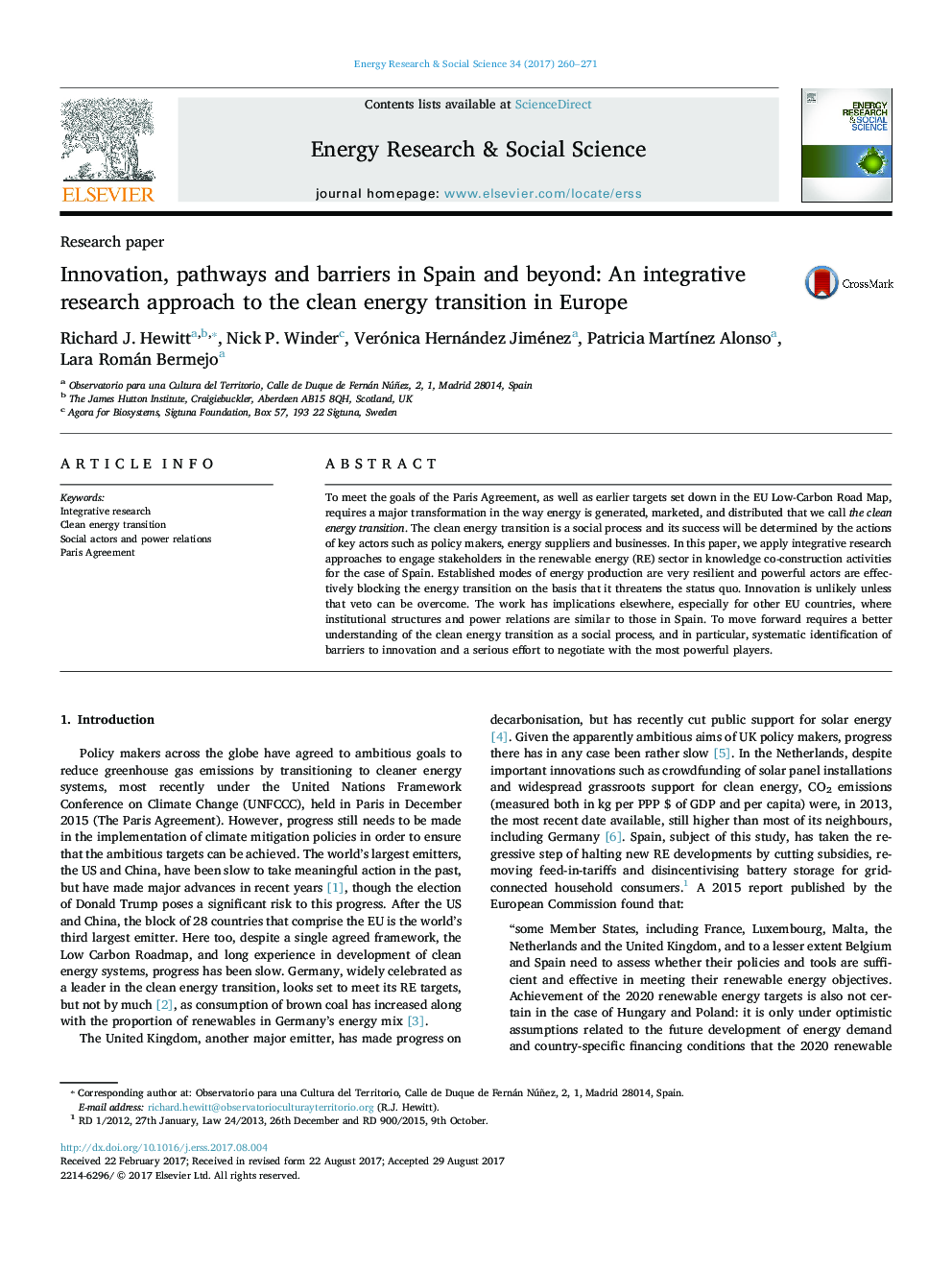| Article ID | Journal | Published Year | Pages | File Type |
|---|---|---|---|---|
| 6463817 | Energy Research & Social Science | 2017 | 12 Pages |
â¢The clean energy transition is a social process dependent on the actions of key actors. Integrative research can help understand this process.â¢Progress in moving towards clean energy systems has been slow and EU member states may not meet their targets.â¢In Spain, powerful incumbent actors have moved to block the clean energy transition.â¢These dynamics also exist elsewhere, jeopardizing the goals of the Paris Agreement.â¢To address this, policy makers must identify barriers and negotiate pathways with key actors.
To meet the goals of the Paris Agreement, as well as earlier targets set down in the EU Low-Carbon Road Map, requires a major transformation in the way energy is generated, marketed, and distributed that we call the clean energy transition. The clean energy transition is a social process and its success will be determined by the actions of key actors such as policy makers, energy suppliers and businesses. In this paper, we apply integrative research approaches to engage stakeholders in the renewable energy (RE) sector in knowledge co-construction activities for the case of Spain. Established modes of energy production are very resilient and powerful actors are effectively blocking the energy transition on the basis that it threatens the status quo. Innovation is unlikely unless that veto can be overcome. The work has implications elsewhere, especially for other EU countries, where institutional structures and power relations are similar to those in Spain. To move forward requires a better understanding of the clean energy transition as a social process, and in particular, systematic identification of barriers to innovation and a serious effort to negotiate with the most powerful players.
